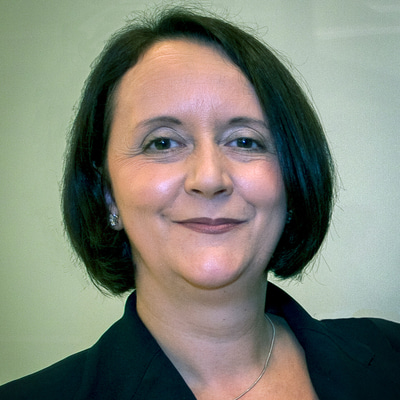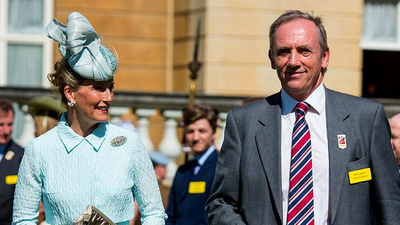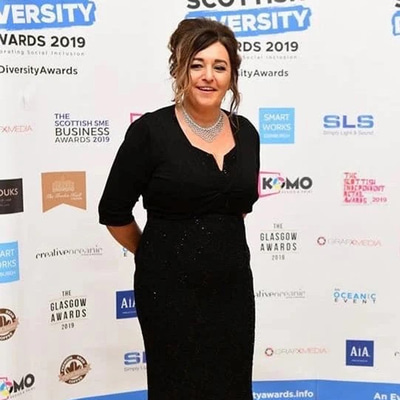- OT
- Life in practice
- Practitioner stories
- Optical sector recognised in King’s Birthday Honours
Optical sector recognised in King’s Birthday Honours
Awards recognise an ophthalmologist who helped transfer eye care into the community and a campaigner who inspired the ECLO service

17 July 2023
An entrepreneur who founded a travel company for the visually impaired and an ophthalmologist who helped to transform eye care services in Northern Ireland are among those recognised.
Below, OT presents a round up of those recognised with a connection to the optical sector.
Professor Julie Silvestri: CBE for services to ophthalmology and eye care in Northern Ireland

Clinical director of ophthalmology at the Belfast Health and Social Care Trust, Professor Julie Silvestri, helped to introduce a ‘hub and spoke’ system where patients can receive much of their acute care and monitoring from optometrists in the community and only travel into ophthalmology hubs when clinically necessary.
Talking with OT, Silvestri shared that she was “honoured and humbled” to receive the recognition.
“I am accepting it on behalf of the ophthalmology team, the Trusts and community optometry. It is a combined effort – it is not just for me. It is great to have that recognition that we are trying to improve services,” she said.
Silvestri said that a desire to improve patient care has been a driving force in her career.
“I do what I do because I absolutely love my job. I love coming to work every day. It is not without challenges, but we want to make things as good as they can be for patients,” she said.
Within her research work, Silvestri contributed to the development of a database of patients with inherited retinal degeneration – enabling the identification of patients who may be eligible for emerging treatments.
“This represents 20 years of finding people – advertisements and going out to speak to patient groups. At first there was not much interest in coming forward because there was really no treatment,” she said.
“Now is the time for genotyping because clinical trials have started for inherited retinal degeneration,” Silvestri emphasised.
“Genetic testing for these patients is now well underway for patients with inherited retinal disorders in Northern Ireland,” she added.
Major General Nick Caplin: CBE for services to veterans and the vision impaired
Bravo Victor chief executive and former chief executive of Blind Veterans UK, Major General Nick Caplin, was recognised with a CBE.

“At the centre of all our efforts was always the care and welfare of our members and beneficiaries, who are truly magnificent and from whom I frequently draw inspiration,” he added.
Caplin shared that he is continuing to serve the sector through efforts to uncover new knowledge to help those with sight loss through the research charity Bravo Victor.
Norma Baillie: MBE for services to blind and partially sighted people
The founder of a company that is the UK’s largest independent provider of visual rehabilitation services was appointed a Member of the Order of the British Empire (MBE).

PrioritEyes chief executive, Norma Baillie, established her business in 2011 and now has 20 staff supporting people across the UK.
Baillie shared with OT that she was diagnosed with Stargardt disease when she was nine years old.
“As I was growing up, I found it really difficult to find support. That gave me the passion and the determination to make a difference,” she said.
Baillie trained as a vision rehabilitation specialist in London, where she worked for several years. She is now based in North Ayrshire.
Baillie shared that vision rehabilitation specialists help people with sight loss to navigate daily life.
“You do all these tasks with your vision – from putting toothpaste on a toothbrush to picking out shampoo and conditioner when you are having a shower or making a hot drink – but when your vision is impaired all these tasks can become difficult and even dangerous,” she explained.
As I was growing up, I found it really difficult to find support. That gave me the passion and the determination to make a difference
The job has provided the opportunity for Baillie to meet people from a range of ages, backgrounds and cultures. Rehabilitation is tailored to the unique needs of the individual.
“Every single person’s life is different, so they all have different goals and expectations. It can be anything from someone being able to get to the local shop or travelling a great distance,” Baillie said.
“It is really rewarding at the end of your training programme to see someone who has rebuilt their confidence and can live their life with no limits,” she emphasised.
Baillie described being recognised with the MBE as a “great honour.” She paid tribute to the staff she works with at PrioritEyes.
“I am so proud of my team – every single one of them is the type of person who would go the extra mile to make sure that people get the support they need,” she said.
Amar Latif: OBE for services to the visually impaired and to entrepreneurship
The founder and chief executive of a company that specialises in bespoke holidays for people with sight loss was appointed an Officer of the Order of the British Empire (OBE).
Latif shared with OT that when he received the letter saying he was to receive an OBE, he could not believe it.
“I really am touched to be receiving this prestigious honour,” he said.
“I couldn't have imagined in my wildest dreams that my achievements would be recognised and acknowledged in this special way,” Latif added.
He explained that he initially set up Traveleyes after becoming aware that travel operators did not cater for people like him.
“I have worked very hard to overcome barriers and preconceptions that people have had of me as a blind person,” Latif highlighted.
“Traveleyes provides freedom to thousands of blind people across the globe and gives them the confidence to step outside of their homes and explore this beautiful world that we all share,” he said.
Dr Hazel McFarlane: MBE for charitable services to people with sight loss
When a letter arrived telling Dr Hazel McFarlane that she had received an MBE, it lay unopened until a day before the deadline for responding.
Although McFarlane, who lost her sight in 2007, has a device for reading letters, it was a chance visit from a friend that led to her receiving the news.
“Just before she went I said ‘Could you have a look at a couple of these letters?’ She read it to me and I said ‘Are you winding me up?’,” McFarlane told OT.
She shared her delight and surprise at being recognised with an MBE.
“What drives a lot of what I do is changing things for children and young people who have sight loss. It shouldn’t be a barrier to them obtaining their potential,” McFarlane said.
McFarlane, who was born with retinopathy of prematurity, experienced a deterioration in her vision when she was completing her undergraduate degree at the University of Strathclyde.
“I had never met another person with sight loss. I got involved with setting up a student organisation so that I could meet other people and find out how they did things,” she explained.
During McFarlane’s time at university, she was a founding member and president of Student Vision Scotland.
She led a successful campaign to ensure that all students in higher education with disabilities could receive the disabled students allowance.
McFarlane’s vision deteriorated over time after she developed uveitis as a result of Lyme disease and then glaucoma in her 30s.
Her experience of being told that there was nothing more that could be done for her vision in 2007 prompted her to establish the Vision Support Service in Ayrshire.
McFarlane remembers sitting in a waiting area by herself wondering if she would be able to physically see her eight-year-old son again.
“I was wondering if I would be able to continue to work. All of these thoughts were running through my head in a really busy environment,” she said.
“People may well have an inkling that things are not right, but I think when people get news that they are not expecting – that their sight loss is irreversible – it is difficult and they need that support,” McFarlane emphasised.
When people get news that they are not expecting – that their sight loss is irreversible – it is difficult and they need that support
The Vision Support Service provides patients with a private room where they can receive practical and emotional support at the point of diagnosis.
This model inspired the roll out of the eye clinic liaison officer model – which was introduced by the Royal National Institute of Blind people across the UK.
Six months after she lost her sight completely, McFarlane joined the Troon Tortoises running club.
“They were amazing. They said ‘We’ve never done guide running but come up and we will see what we can do’,” she said.
McFarlane has now run with the same four guide runners for 15 years – including an ultramarathon to raise money for the Vision Support Service from Glasgow to Edinburgh.
“They said ‘That’s utterly bonkers. How can we help you?’,” she said.
Looking to the future, McFarlane would like to see greater representation of people with sight loss in leadership roles.
“There are not too many people with sight loss in CEO and senior management positions. That needs to change so that the sight loss sector becomes led and driven by people with lived experience,” she emphasised.


Comments (0)
You must be logged in to join the discussion. Log in